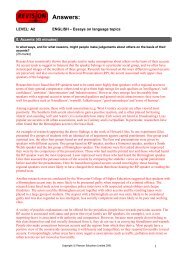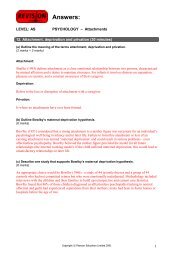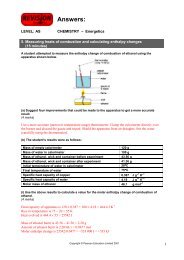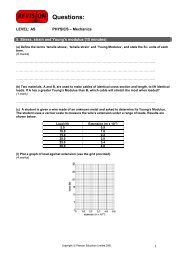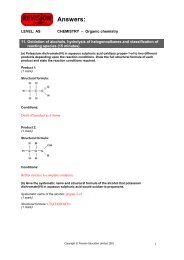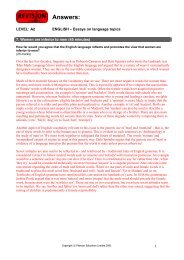The Dove Campaign for Real Beauty - Pearson
The Dove Campaign for Real Beauty - Pearson
The Dove Campaign for Real Beauty - Pearson
Create successful ePaper yourself
Turn your PDF publications into a flip-book with our unique Google optimized e-Paper software.
Chapter 2 Sustainable marketing: marketing ethics and social responsibilityPublic actions to regulate marketingCitizen concerns about marketing practices will usually lead to public attention and legislativeproposals. New bills will be debated – many will be defeated, others will be modified and a fewwill become workable laws. Many laws affect marketing practices. As we will discuss in Chapter 3,companies operating within the EU are bound by several layers of laws and regulatory bodies.National laws are designed to regulate local marketing and business practices. In addition, businesseshave to comply with EU competition and consumer laws en<strong>for</strong>ced by the EuropeanCommission to ensure fair competition and to protect consumer rights. <strong>The</strong> task is to translatethese laws into the language that marketing executives understand as they make decisions aboutcompetitive relations, products, price, promotion and channels of distribution. Figure 2.2illustrates the principal legal issues facing marketing management.‘Ethical consumption is perhaps the biggest movement in branding today,’ according to GfKNOP market research group. Its share of individual markets is relatively tiny although itsinfluence is seen behind the sales of Toyota’s hybrid, L’Oréal’s €1bn acquisition of troubledBody Shop and the huge growth of organic food and drink sales. But the problem, GfK NOPconcluded from their five-nation study, is that consumers are confused. <strong>The</strong> public is not surewhat an ethical brand actually is. <strong>The</strong>re are so many angles to being ethical. In food labelling, isit locally grown, organic or subject to fair trade agreements? In beauty, is it free from animaltesting or produced from ‘natural’ ingredients? Or, maybe products that are fuel-efficient,recycled, produced in unionised work conditions or not linked to the tobacco or arms industries?Selling decisionsBribing?Stealing trade secrets?Disparaging customers?Misrepresenting?Disclosure of customerrights?Unfair discrimination?Advertising decisionsFalse advertising?Deceptive advertising?Bait-and-switch advertising?Promotional allowances andservices?Channel decisionsExclusive dealing?Exclusive territorialdistributorship?Tying agreements?Dealer’s rights?Product decisionsProduct additions anddeletions?Patent protection?Product quality andsafety?Product warranty?Packaging decisionsFair packaging andlabelling?Excessive cost?Scarce resources?Pollution?Price decisionsPrice fixing?Predatory pricing?Price discrimination?Minimum pricing?Price increases?Deceptive pricing?Figure 2.2 Legal issues facingmarketing managementCompetitive relations decisionsAnticompetitive acquisition?Barriers to entry?Predatory competition?95



